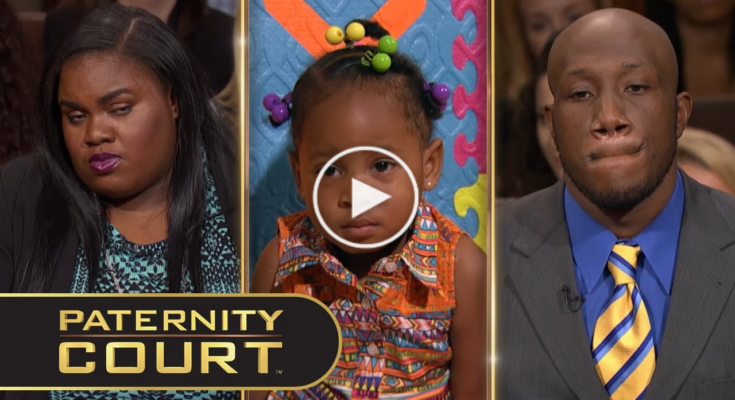The episode revolves around a paternity dispute between Ms. Tisby and Mr. Quarterman. Ms. Tisby asserts that Mr. Quarterman is the biological father of her daughter, a claim that he vehemently denies. He accuses Ms. Tisby of targeting him for his money, while she insists that she can independently support her child.
Mr. Quarterman, in his defense, states, “She’s just after my money. I have nothing to do with her child.” His words reflect his firm belief in his innocence and his frustration with the situation. On the other hand, Ms. Tisby passionately counters, “I can support my child on my own. I don’t need his money.” These statements set the stage for the emotional rollercoaster that the episode turns out to be.
The episode delves into the complexities of their relationship, which was casual according to Mr. Quarterman, but perceived as more serious by Ms. Tisby. The tension escalates as Mr. Quarterman admits to not having done anything for the child, and Ms. Tisby reveals that she had mentioned another man to hurt Mr. Quarterman because he cheated on her. This revelation adds another layer of complexity to the narrative, highlighting the emotional turmoil and the intricate dynamics of their relationship.
The narrative takes a turn when Mr. Quarterman brings up a medical condition that had Ms. Tisby hospitalized, suggesting that she was with another man during that time. Ms. Tisby admits to being with another man but only after she got pregnant. She also denies ever being picked up by Mr. Quarterman or his husband, stating that she has her own car. This part of the narrative brings to light the accusations and counter-accusations that are often part of such disputes, further complicating the situation.
The episode also touches upon the tragic loss of a baby, with the speaker expressing grief over Mr. Quarterman’s absence during the birth and subsequent passing of the baby. The speaker also accuses Mr. Quarterman of asking for money for a funeral that never happened. This part of the episode is particularly poignant, as it highlights the emotional toll that such disputes can take, not just on the parents, but also on the children involved.
The episode ends with a discussion on the significance of biological paternity, the presence of twins in the family, and the use of social media, specifically Facebook, to determine paternity. The speaker insists on having pictures and evidence to prove that the child is theirs, highlighting the refusal of the other person to take responsibility for the child. This part of the episode underscores the lengths to which individuals can go to prove their point, and the role that technology and social media can play in such disputes.
In conclusion, this episode of Paternity Court presents a complex narrative of a paternity dispute, exploring themes of love, deceit, and the pursuit of truth. It provides a glimpse into the emotional turmoil and legal complexities involved in such cases, making it a compelling watch for viewers. The episode serves as a stark reminder of the complexities and challenges that can arise in human relationships. It underscores the importance of honesty, responsibility, and accountability, particularly in the context of family and relationships. It also highlights the emotional toll that such disputes can take on all parties involved, from the parents to the child at the center of the dispute. The video serves as a powerful testament to the human capacity for resilience in the face of adversity, and the enduring quest for truth and justice.



